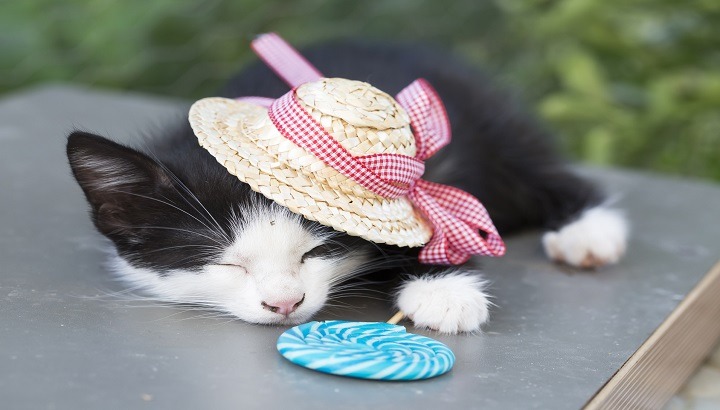Which came first… the insomnia or the soda? It’s kind of like the age-old “chicken or egg” question. Insomnia and soda are often looped into a vicious circle, in an ever-worsening negative feedback loop. New research has shed some light on just how closely insomnia and caffeinated, sugary drink consumption are correlated.
A new study performed by researchers at the University of California – San Francisco examined the sleep and beverage habits of over 18,000 adults. The results of the study were disturbing, but not surprising. The study authors explained:
“Short sleep is associated with greater intake of sugared caffeinated sodas, a relationship that may have important, though unrecognized, implications for physical health. Directionality of this relationship cannot be determined from this study. Although caffeinated drinks could account for impaired sleep, it is possible that short sleep could influence one’s appetitive drive for sugared caffeinated drinks.”
Specifically, the researchers discovered that people who slept five or less hours per night on a regular basis drank 21 percent more sodas and energy drinks than people who slept seven or more hours per night. Sleeping six hours per night was correlated with drinking 11 percent more sodas and energy drinks than sleeping for seven or more hours.
On these results, the study’s lead author, assistant professor of psychiatry Aric A. Prather, commented:
“Sugary drinks and sleep loss reinforce one another, making it harder for people to eliminate their unhealthy sugar habit. This data suggests that improving people’s sleep could potentially help them break out of the cycle and cut down on their sugar intake, which we know to be linked to metabolic disease.”
Prather added:
“Sleeping too little and drinking too many sugary drinks have both been linked to negative metabolic health outcomes, including obesity. Given the likely two-way relationship between sugary drinks and short sleep, enhancing the duration and quality of sleep could be a useful new intervention for improving the health and well-being of people who drink a lot of sugary beverages.”
It is indeed a vicious and dangerous loop. When people don’t sleep enough, they feel tired. They then turn to sugar and caffeine to help them get through the day. These substances, in turn, make it more difficult to sleep. Thus the cycle continues.
We all know how terrible sugar is for our health (diabetes, heart disease, inflammation, the list goes on), and not getting enough sleep on a regular basis is also highly destructive to both the body and the mind. To break this cycle, it’s worth it to focus on getting the best quality and quantity of sleep you can. Having a hard time? Try the following tips for a healthy sleep:
– Sleep in complete darkness: The pineal gland in your brain secretes melatonin in response to darkness. You need melatonin for healthy sleep… so make sure your room is as dark as it can be.
– Stick to a schedule: The sleep wake cycle functions much better when it has a regular, predictable rhythm. Try to have your bedtime and wake time not vary by more than an hour in either direction.
– Catch the wave: Don’t miss your “sleeportunity.” When you’re tired… go to bed.
– Minimize electronics before bed: Stay away from bright screens in the hour before bedtime. The bright light shuts off melatonin secretion.
– Use “night mode”: Smartphone and computer developers are getting hip to the reality that their products produce disruptive frequencies of light… and they have answered that critique with some useful new tech tools. “Night mode” is now available on many devices. It is a feature that decreases the amount of blue spectrum light that your screen puts out. You can set it to turn on night mode from sundown to sunrise, or turn it on manually.
– Use red or amber nightlights: If you need to navigate during the night, using a red or amber night light will not affect your melatonin levels like a white bulb does.
– Keep it cool: The optimum temperature for nighttime in the bedroom is between 65 and 68 degrees.
– White noise: Consider using a fan or an inexpensive white noise machine.
– Avoid liquids for 1-2 hours before bed: And remember to empty your bladder before bed even if it doesn’t feel full. This will reduce the chance of nighttime awakening.
– Avoid caffeine after 2pm: We all envy those people who can drink a cup of coffee and go right to sleep… but for many of us “normal people” the effects of caffeine can linger for many hours.
– Make your bedroom as a sleep sanctuary: It is not and entertainment center. Get rid of the TV and the electronics and make you bedroom a refuge.
– Try lavender: Some people find that rubbing some lavender essential oil on their pressure points, such as the wrists and temples, can be relaxing and sleep enhancing.
– Get tested: If your insomnia is intractable, you might benefit from a consultation with a sleep specialist who will likely conduct a sleep study to get a more clear diagnosis.
“Sweet” dreams,
– Dr. Joshua Levitt









